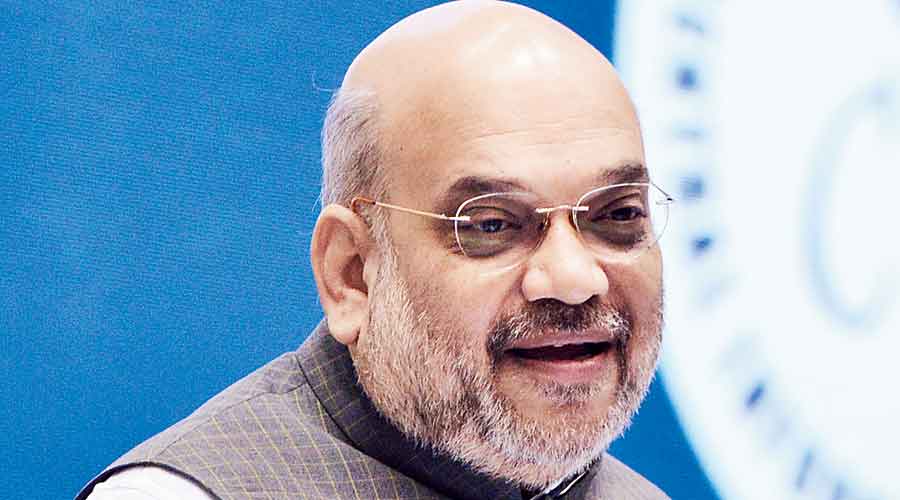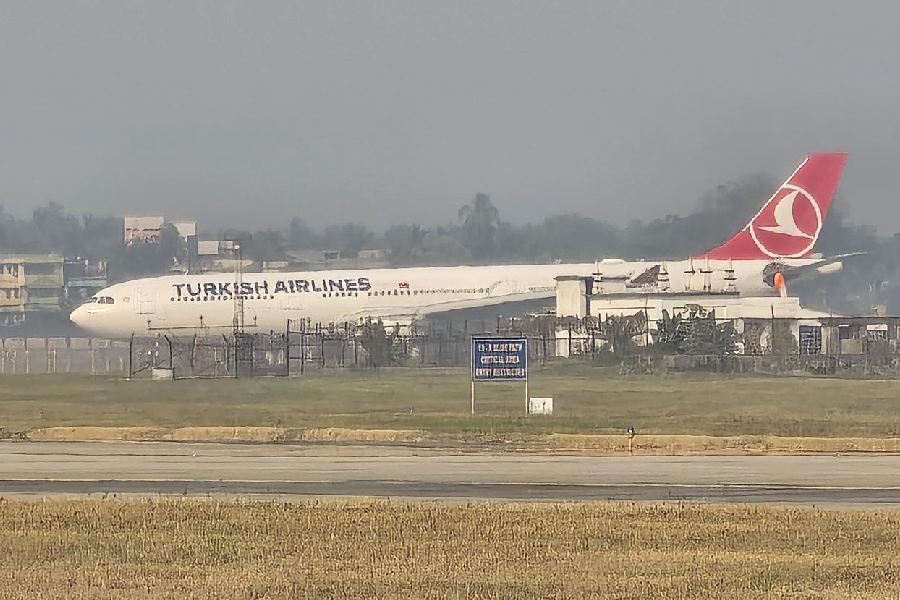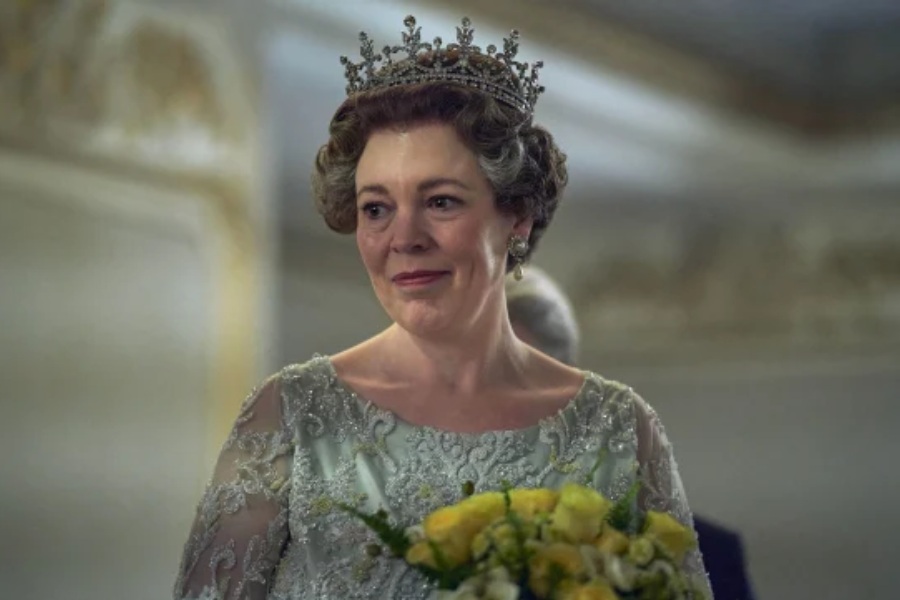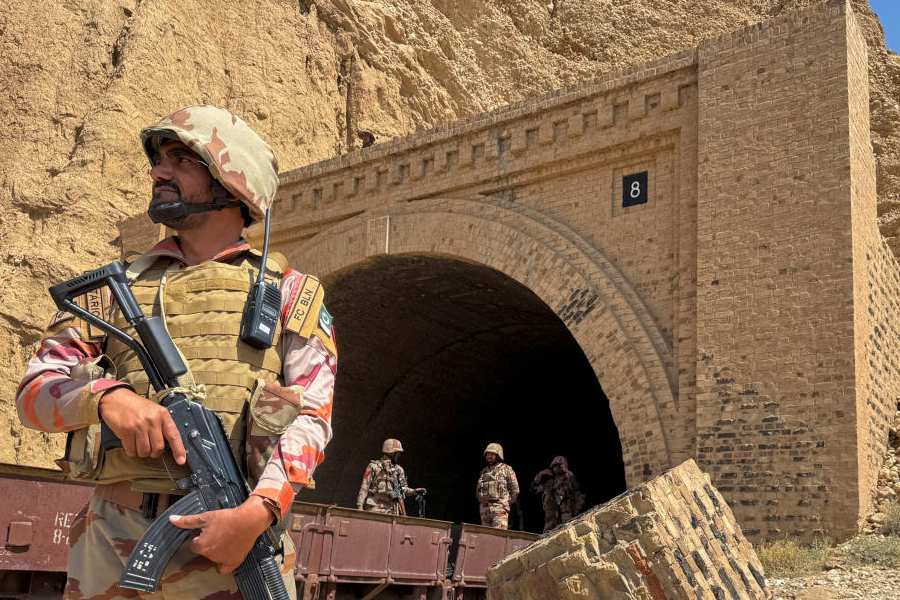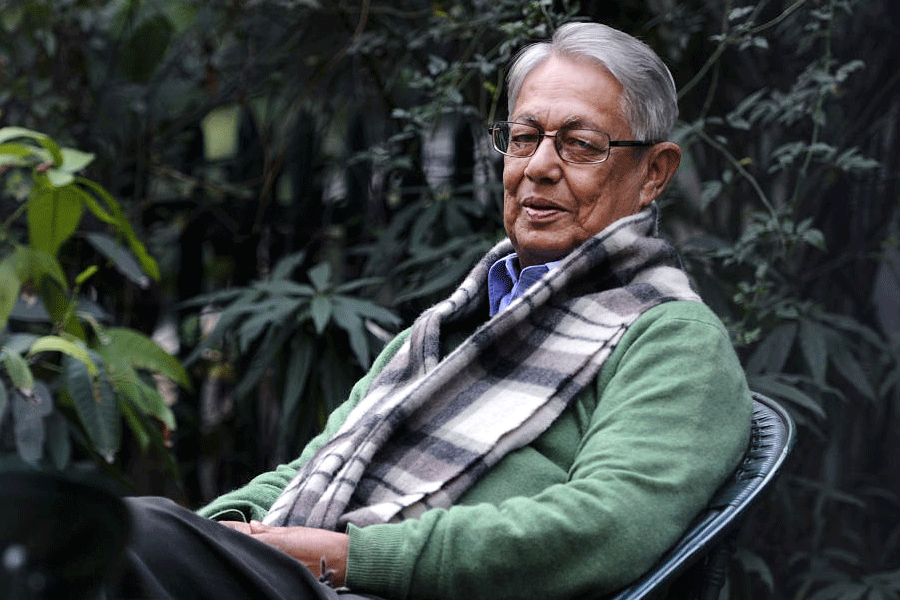The Union home ministry’s yearend review has listed Amit Shah’s intervention to contain the February riots in Delhi as one of the highlights of 2020, and suggested the violence that killed 53 people was “spontaneous”.
Both evaluations contrast sharply with a report by the Delhi minority commission that accuses Shah, Uttar Pradesh chief minister Adityanath and other BJP politicians of “fanning communal sentiments” through incendiary speeches in the lead-up to the riots.
The minority panel’s October report also alleges that Delhi police, who answer to Shah’s ministry, “were complicit and abetted the attacks” during the riots and tended to arrest the victims rather than the people they accused.
Muslims were the worst sufferers of the violence, which began on the night of February 23 and continued till the afternoon of February 27.
Under the head “Delhi Riots — Home minister steps in”, the annual ministry review refers to a meeting Shah held two days after the start of the violence, another that he conducted as the rioting abated, and comments he made in Parliament a fortnight later.
“On February 25, Amit Shah chaired (a) meeting with political parties and senior officials on violence in Delhi,” it says.
“Shri Amit Shah urged political parties to avoid provocative speeches and statements which could flare up the communal violence. He noted that the professional assessment is that the violence in the capital has been spontaneous. The Union minister directed deployment of additional forces in the affected areas.”
By then, the inflammatory speeches had been delivered. The minority panel’s report says BJP politician Kapil Mishra, a former Delhi minister who was defeated in the February 8 Assembly polls, delivered a provocative speech in Maujpur on February 23, hours before the violence started.
Shah had himself urged voters on January 27 from Baburpur, one of the sites of the subsequent riots, to press the voting button with such “anger” that the “current” was felt at Shaheen Bagh, venue of the celebrated women-led vigil against the new citizenship law.
The riots were largely concentrated in constituencies the BJP had won in the Assembly elections on the back of a polarising campaign led by Shah. Five of the eight seats the BJP won in the 70-member Assembly were in northeast Delhi, where the rioting took place.
The home ministry’s annual review says that on February 27, Shah “took stock of the prevailing law-and-order situation in Delhi”. On March 12, he responded to a discussion on the Delhi violence in Parliament.
“Expressing grief over loss of life and property in Delhi violence in Rajya Sabha, the Union home minister reassured the nation that (the Narendra) Modi government is committed to bring the perpetrators to justice regardless of their religion, caste, creed or political affiliation,” the review says.
In the minority panel report, a paragraph on “incendiary campaign speeches and the fanning of communal sentiments” flags speeches delivered by Shah, Adityanath and Mishra as well as Union ministers Giriraj Singh and Anurag Thakur, MPs Parvesh Verma and Tejasvi Surya, and some other BJP campaigners.
Among the speeches cited is one by Shah on January 27, where he is quoted as saying: “Your vote to (the) BJP candidate will make Delhi and the country safe and prevent thousands of incidents like Shaheen Bagh.”
The panel report says: “Violence started in different pockets almost immediately after the short speech of Shri Kapil Mishra on 23 February 2020 at Maujpur in which he openly called for forcefully removing the protesters at Jaffrabad in northeast Delhi.”
On February 27, Delhi High Court had played the recorded speech in court for the benefit of the police and prodded the force to act. But the police later told the bench that “no actionable evidence has surfaced yet indicating any role being played by” any prominent political leader in “instigating and/or participating in the riots”.
A former Intelligence Bureau joint director, who requested anonymity, said the home ministry’s review highlighting Shah’s role in handling the riots was just eyewash.
“The role of the government and the police was dubious and partisan. It (the violence) was not spontaneous but planned.”
He wondered how the violence had continued for “so many days” despite the affected zone being within 10km to 15km of the Prime Minister’s Office, the home ministry’s North Block seat, Rashtrapati Bhavan, Supreme Court and the headquarters of the army, Intelligence Bureau and the police.

